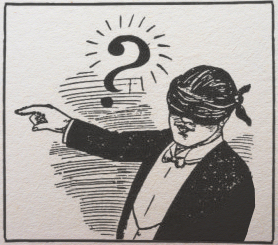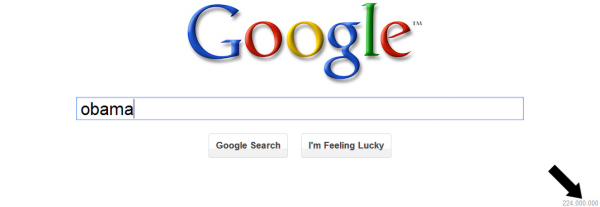First published here on Mariano’s Scifoo14 blog
As a magician with an academic background in Computer Science, the probability of me citing Arthur C. Clarke’s Third Law in a post (“Any sufficiently advanced technology is indistinguishable from magic” (1) ) is dramatically high. I’ll keep you safe from the risk, illustrating a practical example of how Clarke’s Law may inspire a truly magic technology – or a truly technological magic.

At the beginning of 2010 I was working on the ability of reading while blindfolded (the psychic power the Burdin Prize was based on). When presented in a theatrical context, its surprising plot can be summarized in few words: the magician is able to get pieces of information stored out of his sight. At the royal court of Ramses, knowledge was sealed in papyri: at the time, the proto-mentalist Siosiri performed before the pharaon reading a papyrus without opening it. (2) The same performance was labeled “Book Test” (3) when printed books started to be involved. No matter where information was: mentalists have always been able to get it in a magical way.
Studying past trends is the best way to predict the future: in a while, magic stores will sell e-book tests and one day mentalist will connect their mind directly to the Internet, where information is stored today.
The best way to predict the future is to create it: I had the idea of using Ajax (Asynchronous JavaScript and XML) as a d�mon working for me behind the curtains and helping me to (apparently) connect my brain to the electromagnetical waves surrounding my head. A website exploiting Ajax takes advantage of downtime to anticipate calculations, with the purpose of offering the user a higher speed and a better experience of interactivity. Like in a magic show, the dirty work is done out of sight. With the help of this d�mon I created Google Mind.
Open google.com in your browser and invite a friend to write any string in the input box – e.g. the name “Obama”. Before clicking Search, you connect to the search engine with your mind and announce: «Googling “Obama” you will get about 224 millions results.» When clicking Search, Google confirms: there are about 224 millions results.
The truth? The engine you are using is not the original one, but an enhanced mirror. As soon as your friend has written her string in the input box, before clicking “Search” the sneaky Ajax googles it and parses the resulting page, extracting the number of occurrences of the string. That number appears for a second in the bottom right corner of the screen; you just need to glimpse and announce it in a mysterious fashion, as if it came from your “animal (electro)magnetism”.

My (unauthorised) Google Mind (April 2010).
It worked for a while. And I enjoyed to perform it before the astonished eyes of my friends.
Someone said that magic is merely technology ahead of its time. The Magic Mirror in the story of Snow White was conceived centuries before flat-screen TV. Aladdin’s Magic Carpet flew long before Wright brothers. The Lamp of the Genius could be activated by swiping – the same gesture used to unlock modern smartphones. Announcing Google Instant on 8 September 2010, Google confirmed it.
The new functionality made search fast by showing results instantly as one typed. And yes, Google used the same d�mon which had worked for my magic trick. Google Mind was – in a way – “embodied” in the official search engine, forcing me to explore new ideas and to conceive even more remote futures.
1. Arthur C. Clarke, “Hazards of Prophecy: The Failure of Imagination” in Profiles of the Future: An Enquiry into the Limits of the Possible, 1962, p. 36.
2. See the Setne Papyrus at British Museum, London. Its translation is available here in Francis Llewellyn Griffith, Stories of the High Priest of Memphis, Clarendon Press, Oxford 1900.
3. William Stainton Moses, Spirit Teaching, London Spiritualist Alliance, London 1898, p. 32.
BY-NC-SA 4.0 • Attribution-NonCommercial-ShareAlike 4.0 International